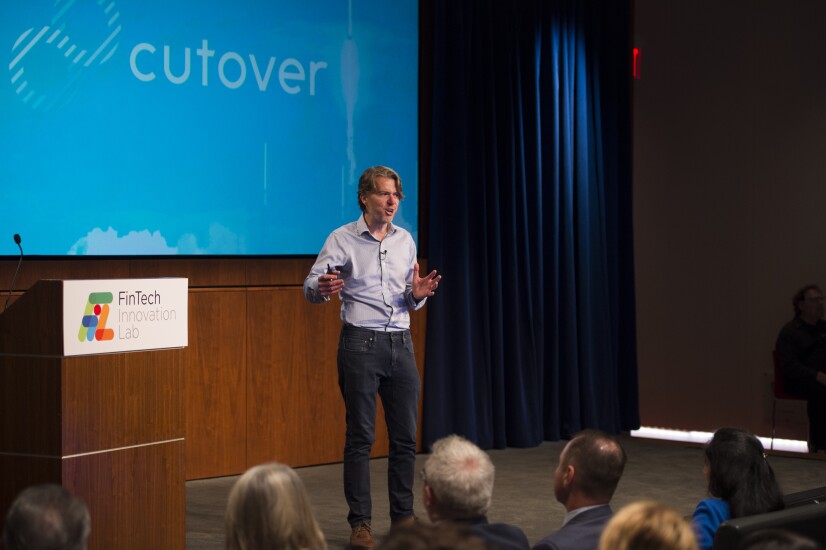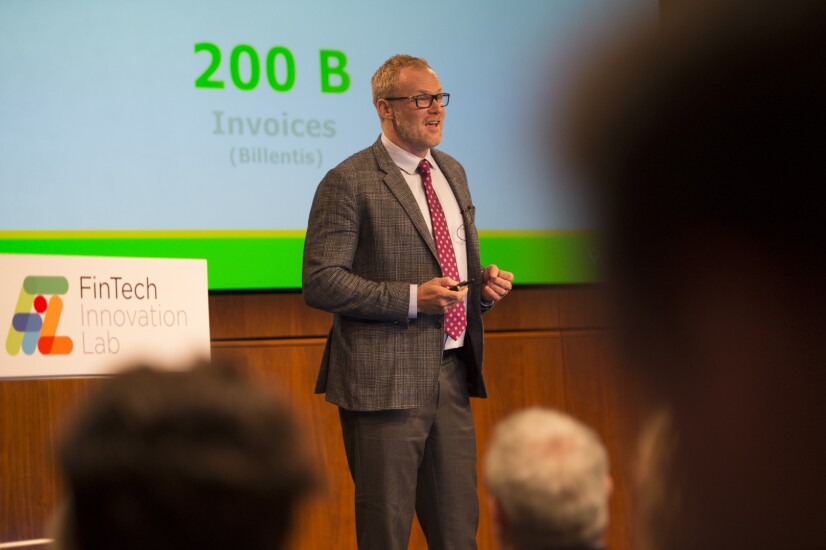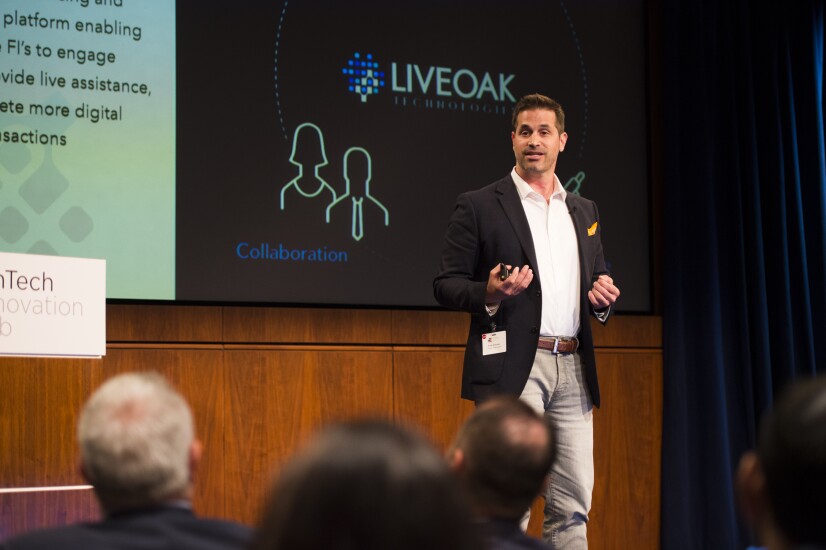Improving artificial intelligence, solving IT problems and providing a better customer experience were themes of Thursday's Fintech Demo Day, in which 11 fintech startups showed bankers and venture capitalists their bank-oriented offerings in the auditorium of Bank of America’s Bryant Park tower.
For the past eight years, the FinTech Innovation Lab New York — a collaboration between 43 financial institutions, Accenture and the Partnership Fund for New York City — has held this annual accelerator, in which bank executives choose the startups and work with them for 12 weeks to help them hone their products into something a bank would use.
“This is a crucial conduit for emerging technology companies to work with us,” said David Reilly, global banking and markets CIO of Bank of America. “One thing you'll find consistently in financial institutions is we know we don't have all the answers, partnerships are critical. And not for the sake of saying we're working with emerging companies. Our clients need access to these tools, these technologies, these products, so we can enhance these services, particularly at the scale at which we all operate.”
This year, the program added an insuretech track, acknowledging the $2.3 billion in investments in such startups made in 2017, a 63% increase over the year before, according to Maria Gotsch, CEO of the Partnership Fund for New York City.
Several of the startups demonstrated bank-specific technology that may impact the industry in years to come:










